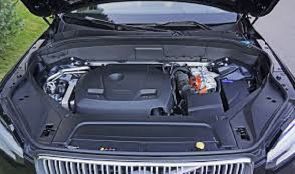Volvo has become the first traditional carmaker to signal the end of the internal combustion engine by saying all its cars will have an electric motor in three years’ time.
The Chinese-owned firm, best known for its emphasis on driver safety, is not killing petrol and diesel altogether.
By 2019 all of its cars will be either all-electric, or hybrids which combine electric and conventional engines.
Volvo’s move puts pressure on Tesla, the start-up maker of electric cars.
On Sunday, it announced that it will start deliveries of its first mass-market car, the Model 3, at the end of the month.
Elon Musk, Tesla’s founder, said the company was on track to make 200,000 Model 3 cars a month by December.
His company’s rise has upset the traditional power balance of the American car industry.
Tesla, which makes no profits, now has a stock market value of $58bn, nearly one-quarter higher than that of Ford, one of the Detroit giants that has dominated the automotive scene for more than a century.
China shift
As well as a shift west – from Detroit to California’s Silicon Valley, where Tesla is based – Volvo’s electric move underlines a shift eastwards, to China.
Geely, Volvo’s Chinese owner, has been quietly pushing ahead with electric car development for more than a decade.
“This announcement marks the end of the solely combustion engine-powered car,” said Hakan Samuelsson, chief executive of Volvo’s car-making division.
“People increasingly demand electrified cars, and we want to respond to our customers’ current and future needs,” he said.
Elon Musk’s greatest rival may come from China, rather than closer to home.








